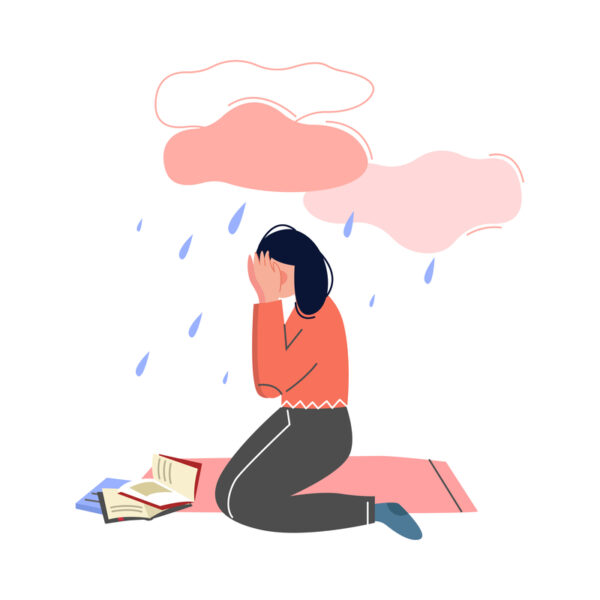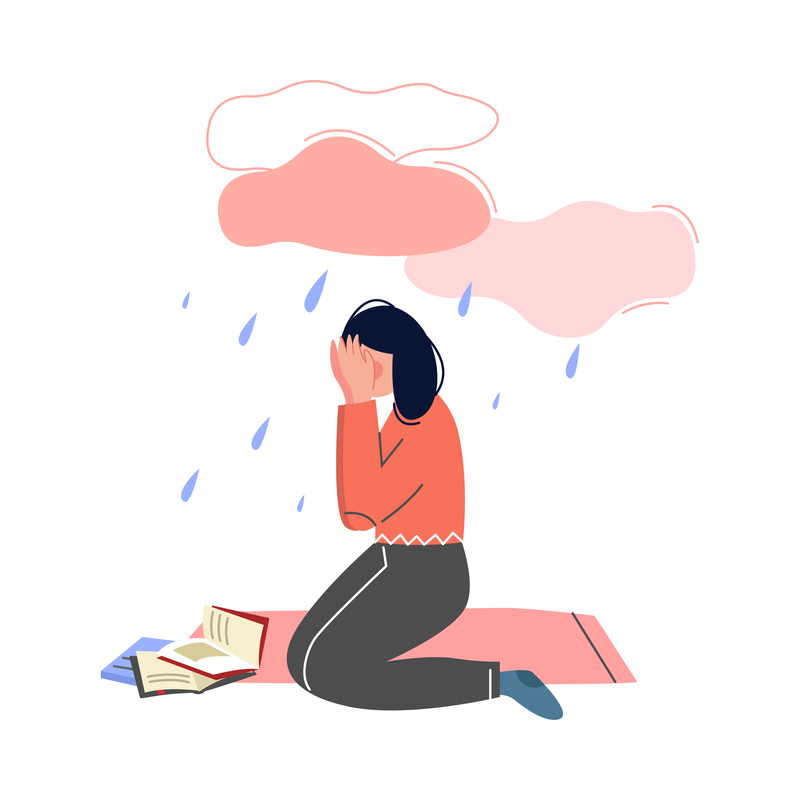
September is often a time of change, as we all head back to school and the seasons change. September is also National Suicide Awareness Month, a campaign that works to raise awareness around suicide and to increase prevention across the country. This is increasingly relevant as we continue to endure a global pandemic and experience social isolation, prolonged time with our family in our homes, and no clear sign of when life will return to “normal.” According to Centers for Disease Control, during March-June there has been an increase in reported mental health concerns such as symptoms of depression, anxiety, and suicidal ideation. So how do we differentiate between sadness and depression? How do you identify when you or a friend may need more professional support? Today’s blog will focus on addressing these questions and resources for support.
Recognizing the Signs
Sadness is a normal part of the human experience and can be triggered by many things, such as the loss of something/someone or unmet expectations or insensitivity. When you are feeling sad, you can usually attribute it to an event or interaction that happened and triggered these feelings. Depression, on the other hand, often doesn’t have a specific trigger and the sadness is often prolonged. Depressed feelings often have a sense of darkness or hopelessness that feel hard to explain to others but are very real to the person experiencing them. According to the Diagnostic Statistical Manual of Mental Disorders (DSM 5), at least 5 of these symptoms must be present over the course of 2 weeks:
- Depressed mood for most of every day
- Decreased or diminished interest in activities that formerly brought enjoyment
- Weight loss or weight gain
- Significant changes in sleep patterns
- Slowing down of thought or movement
- Fatigue/loss of energy
- Feelings of worthlessness or guilt
- Less ability to concentrate or make decisions
- Regular thoughts of death or dying
Put more simply, depression leads to a decreased ability to function socially, academically, or occupationally.
Being a teenager is hard. It’s often a season of life when you are seeking to establish an identity outside of your family and begin defining who you really are. Friendships and relationships become more important than ever and you’re faced with even more pressures academically, socially, physically and emotionally than when you were younger. There are often pressures to define your spiritual beliefs for yourself, to explore your sexuality, and to engage in alcohol in drug use. In our current age of social media, there is also a more acute awareness of what others are doing which can lead to comparison, feelings of isolation or exclusion, and fearing that you are missing out on fun things other kids are doing.There is a tremendous amount of pressure on determining your future, deciding if you will attend college and where, what you will major in, and how you will achieve the grades you need to get where you want to go. There is a lot of fear and anxiety that comes with wondering what will happen if you fail to figure these things out in some way or are not meeting the expectations of those closest to you. There is often a heavy weight put on us to be successful, but defining what that is and how that fits for you can feel elusive and overwhelming.
It’s normal to experience sadness and days where you feel down, but if it’s a prolonged experience or you’re feeling like it’ll never end, it may be time to consider doing something different. Consider talking to a trusted parent, school counselor, or friend and letting them know how you feel. Consider whether it may be helpful to have an objective third party listen without judgment and no agenda for you. This is what a therapist can offer you that is different than talking to someone you know, along with the confidentiality that comes with the therapeutic relationship. Your therapist’s focus is helping you to meet your goals and be able to function better. In the meantime, depression often deepens when we become fixated on the negative feeling. Try doing things that are good for your body or mind to boost your mood and break down the negative thought spiral. Some of my favorite coping strategies include:
- Going for a walk
- Making a gratitude list
- Calling a friend
- Exercising
- Listening to upbeat music
How To Help When You’re Worried Someone You Love is Depressed
No one likes to be diagnosed, even by a loved one. I share these symptoms with you not as a check-list but rather as guideposts for evaluating where you are at. Some of these symptoms are more observable on the surface, but many are more thought-based and internal. If possible, you can gently point out something you’ve noticed but then ask an open-ended question without assuming how they will respond. You want to leave room for your friend to disagree with your interpretation of their actions without feeling like they have to defend themselves. Ultimately, you want to express that you care and are willing to listen. Here are some examples of questions you could ask someone you have a good relationship with:
- It seems like you’ve been down a lot lately. Is that how you’re feeling? Do you have a sense of where those feelings may be coming from?
- It seems like you’ve been pretty hard on yourself lately. Do you want to talk about what’s going on in your head lately?
- I’ve noticed you’ve been more distracted or weighed down lately. Want to talk about it?
If your conversation gives you more clarity that they may be experiencing depression, it could be appropriate to ask more directly if they are feeling depressed lately, or if they think they would benefit from talking more about it, and if they might consider reaching out to a parent, counselor, or other mental health professional.
Resources
Sharing feelings of depression with someone else is risky and vulnerable, but it really can make a difference and help you to feel less alone in the process. While talking to a friend or loved one can be extremely helpful, there is a lot of value to working with a professional therapist. Take time to find someone who you connect with and makes you feel comfortable. It’s okay to meet with a new therapist and ask to try someone else if you leave the first few sessions feeling uncomfortable or disconnected.
At Milestones, we have a growing practice of various therapists and expertises and we’d love to help you get connected to the right one. Please call (443) 574-4295 to schedule an appointment today!
There are also a number of crisis resources available if depressed thinking is leading you to suicidal thoughts or plans:
- Grassroots Crisis Intervention (local to Howard County): a great resource for suicidal hotlines and chats and for use in emergency/urgent situations
https://grassrootscrisis.org/services/crisis-intervention/ - Grassroots Suicide Prevention App: There is Hope
- National Suicide Prevention Hotline: 1-800-273-8255
- Text hello to 741741 (The Crisis Textline)
I want to encourage you that you do not have to face these feelings alone and that life doesn’t always have to feel like this. There is hope and there is help. Is today the day you ask for these things?

